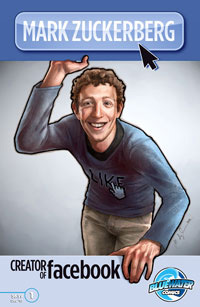The BBC has a real problem with social media. It’s delighted when something new appears. It slips into the patrician role that comes naturally to broadcasters – and especially the BBC. It can express childlike wonderment – Wow! – at something new and amazing. Getting beyond that though, is where the trouble starts.
Perhaps the BBC is haunted by the idea that people simply get on and use new communication tools without “Auntie’s” assistance. The viewers typically also have much more realistic expectations of the technology than, say, pundits. So we keep hearing wonderment, and advice on how get online, a bit like a slightly mad primary school teacher.
The gears really grind when something more critical is required. This week the corporation’s news flagship Newsnight – one of the last remaining TV programmes for grown-ups – asked if there was a “tech bubble”. Investment is pouring into social media startups. Would it all end in tears?
Yet having the posed the question, the report and discussion that followed were designed to dispel understanding and analysis. Before long it had turned into a gathering of the Unicorn Preservation Society. We were even told that only people who might want to describe the web investments a “bubble” were self-serving opportunists.
Bad people, in other words, thinking bad thoughts.






